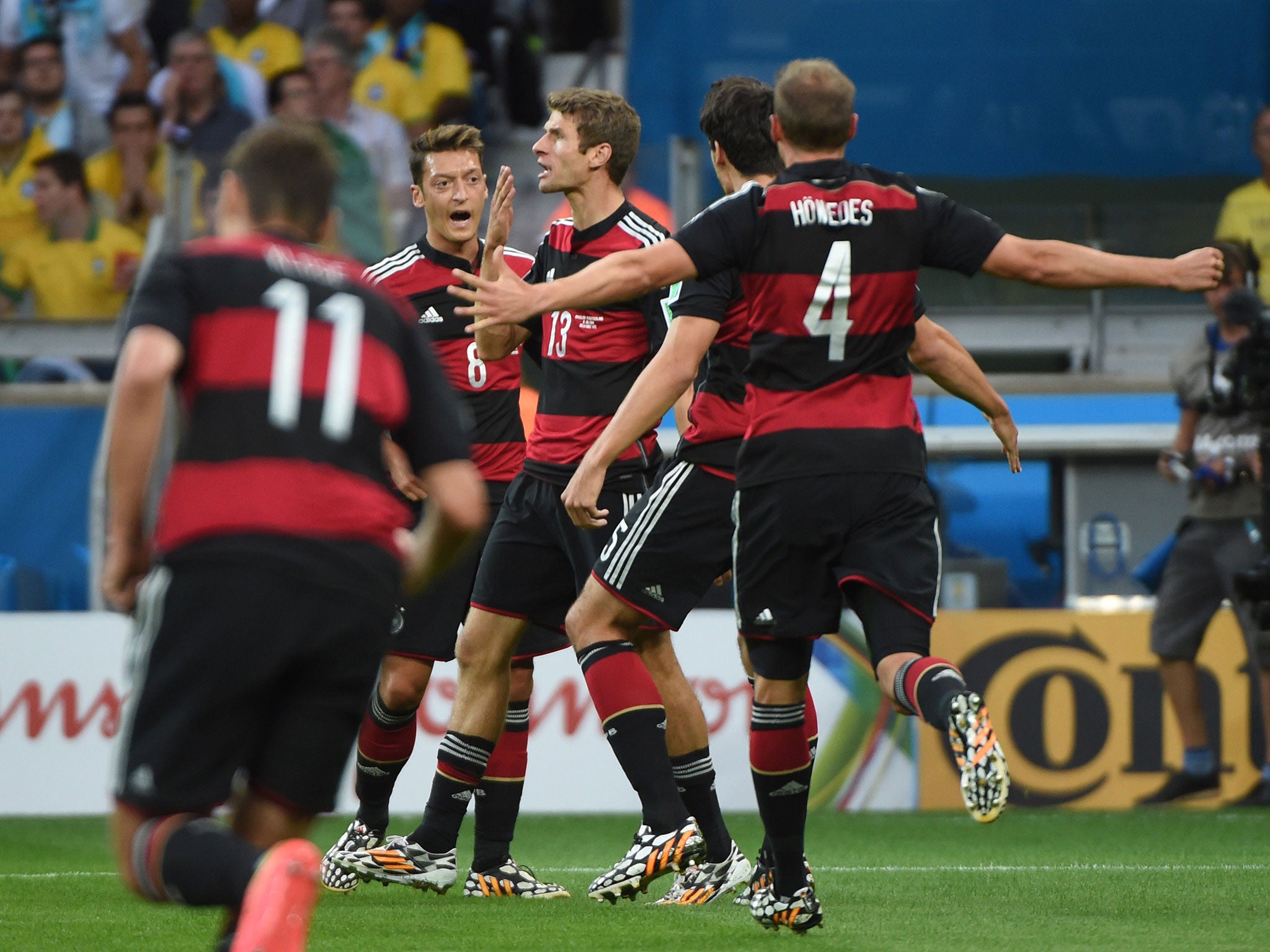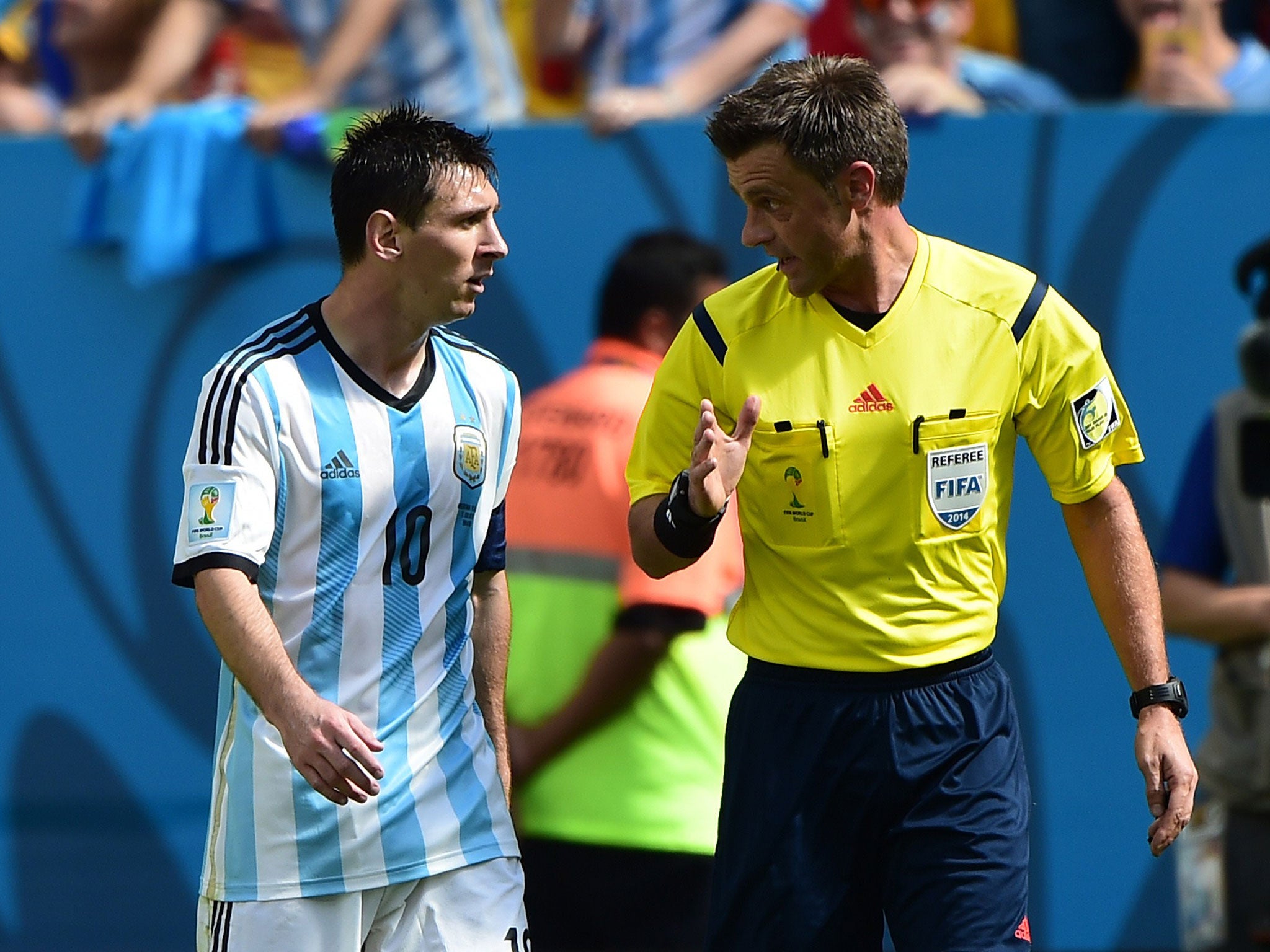Germany vs Argentina World Cup final 2014: Will the Germans have an advantage because of the extra day's rest?
Will the extra day off really make a difference? We're not quite sure...

Your support helps us to tell the story
From reproductive rights to climate change to Big Tech, The Independent is on the ground when the story is developing. Whether it's investigating the financials of Elon Musk's pro-Trump PAC or producing our latest documentary, 'The A Word', which shines a light on the American women fighting for reproductive rights, we know how important it is to parse out the facts from the messaging.
At such a critical moment in US history, we need reporters on the ground. Your donation allows us to keep sending journalists to speak to both sides of the story.
The Independent is trusted by Americans across the entire political spectrum. And unlike many other quality news outlets, we choose not to lock Americans out of our reporting and analysis with paywalls. We believe quality journalism should be available to everyone, paid for by those who can afford it.
Your support makes all the difference.After the Germans razed Brazil’s football foundations to the ground on Tuesday evening, crushing the overmatched and overemotional hosts 7-1, they could sit back and watch with something approaching glee as Argentina and the Netherlands tore lumps out of each other for 120 minutes.
The Argentinians, of course, eventually progressed through to the final by a penalty shootout that was as bruising on the nerves as the previous two hours had been on the legs.
But does that necessarily mean that their opponents will have a physical advantage in the Maracana on Sunday night? A glance at history suggests yes and no…
The World Cup has alternated through its history between the semi-final and second group stage formats. Often, those semis have occurred on the same day, though since 1990 this has only once been the case, at USA 94.
The 1966 World Cup was the first to feature semi-finals played on different days. West Germany faced the Soviet Union on 25 July 1966, followed by England’s game against Portugal a day later. The extra 24 hours’ rest did the Germans no good, however- Alf Ramsay’s side famously triumphed 4-2 in extra time. Perhaps home advantage and the raucous atmosphere inside the old Wembley negated the added freshness in the German legs.
The World Cup semi-finals were not held on different days again until Italia 90. There, both the Argentines and West Germans were forced to play on into extra-time with the Argentines’ contest against Italy coming a day earlier, on 3 July.
It didn’t help them, however- West Germany won the final 1-0. The Argentines were hampered not by fatigue but by the combined effects of suspension and injury- perhaps these are more important factors than the extra day’s rest a team may receive.
In 1998, Brazil concluded their semi-final against the Dutch a day before the French progressed by beating Croatia. However, the Brazilians required extra-time in order to despatch Bergkamp, De Boer and co, whilst the French needed only regulation time. In addition, the Brazilians were thrown into turmoil minutes before the final by the mysterious saga of Ronaldo, who should never have started the game.
Again, it seems, many more factors than fatigue can affect a team’s performance in a World Cup final.
In 2002, the team with the earlier semi-final were again defeated when it came to the main event. Germany bested South Korea 1-0 on 25 June, and Brazil defeated Turkey by the same scoreline a day later. But that single day’s discrepancy was not enough to make up for the difference in quality between the Brazil of Rivaldo, Ronaldo and Ronaldinho and one of the poorest sides ever to reach a World Cup final.

In 2006, the team granted an added 24 hours’ recuperation finally prevailed. Italy played their semi-final exactly a day before France, and went on to beat the French on penalties in the final. But given that they only emerged victorious after another 120 minutes of football- and via the lottery of penalties, too- perhaps the French weren’t unduly affected by lacking a day of recovery.
In 2010, the familiar pattern was resumed. Spain played their semi-final a day later than the Netherlands and went on to beat them 1-0 in the final courtesy of Andres Iniesta’s extra-time strike. The Spanish may well have been in better shape come the final- but the gap in technical quality between the two sides can hardly have hurt their chances.
An extra day's recuperation surely cannot hurt a team- but as this potted history shows, it's probably much less of a help than it might seem. If Germany do the expected and beat Argentina on Sunday night, it will be more down to the gulf in ability and nous between the two teams- and far less due to the Germans' fresher legs.
Join our commenting forum
Join thought-provoking conversations, follow other Independent readers and see their replies
Comments